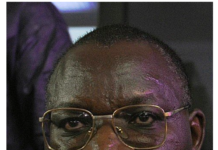Pretoria – South Africa has warned rebels fighting in the Democratic Republic of Congo not to try and retake the battleground city of Goma on Friday after a week of escalating violence.
South Africa is part of the UN peace enforcement military task force to the country’s troubled eastern region bordering on Rwanda.
Goma, a mining hub and town of a million people, was briefly held by M23 rebels earlier in the year and still remains under threat.
“We’re trying to send a message to the M23, this time around you’re not going to see Goma,” said Lieutenant General Derrick Mgwebi, South Africa National Defence Force Chief of Joint Operations.
“Don’t venture in ideas of taking over again.”
South African soldiers are part of a UN intervention brigade, a 3 000-strong contingent with an unprecedented offensive mandate to fight entrenched armed movements, marking a strategic change of tack from traditionally peaceful UN missions.
“This is the first time that a UN peacekeeping force has had as its sole mandate the seeking out and neutralising of rebel groups,” said Darren Olivier, a senior correspondent at the African Defence Review, an organisation focused on African security.
“While UN peacekeeping missions in the past have on occasion directly engaged rebel forces, they have done so as part of mandates to defend themselves or population centres only,” he said.
Indiscriminate shelling
Fresh fighting flared in the resource-rich eastern DR Congo Thursday, with government forces backed by UN troops shelling rebels near Goma and tensions spilling over into neighbouring Rwanda.
UN Secretary-General Ban Ki-moon on Friday accused M23 rebels of “indiscriminate shelling” inside the DRC and into Rwanda, where authorities said a woman was killed in artillery fire on Thursday.
“He also calls on all member states with influence in the region to assist in easing tensions,” in a statement released by his spokesman Martin Nesirky.
South African snipers have killed at least six M23 rebels in recent days as Ukranian Mi-24P helicopters pounded M23 positions from the air.
Olivier said the United Nations has a significant military edge over their M23 adversaries.
“The biggest advantages they have at the moment are its artillery batteries, mortar teams, special forces commandos and the two Mi-24P attack helicopters providing air support,” he said.
This allows the UN forces to “provide effective assistance without needing to engage its infantry battalions directly”.
The M23 rebel movement is a predominantly ethnic Tutsi force that deserted from the army last year and has been battling the regular army.
This week the UN force has seen intensified fighting as it attempts to keep rebels from Goma. The fighting took place in Kibati, an area in the northern outskirts of Goma.
Escalating violence
“Bombs were landing in the airport and in the town,” they were “falling left and right” of the South African Munigi base, according to notes distributed by the South African military.
M23 mortars killed a Tanzanian United Nations peacekeeper and injured ten others on Wednesday, according Mgwebi.
“Three of our soldiers have been injured in the conflict since the weekend, largely from shrapnel wounds. None have been seriously wounded,” said President Jacob Zuma on Thursday.
South Africa is contributing 1 345 troops to the UN mission, representing approximately half of the intervention brigade.
The escalating violence is a sensitive issue in South Africa, after 15 of the country’s soldiers were killed in the Central African Republic in March, amid criticism that the troops were unprepared and did not have adequate equipment.
But Mgwebi said the troops deployed to date have received training and are protected. “They’ve got something on the ground and fire support is being provided as we speak,” he said.































































